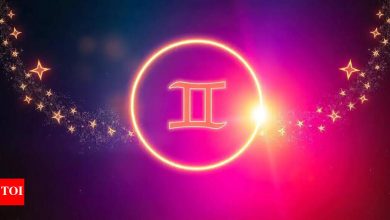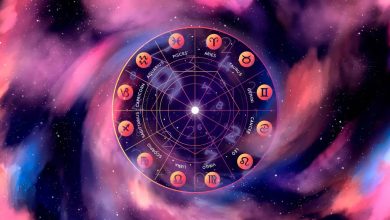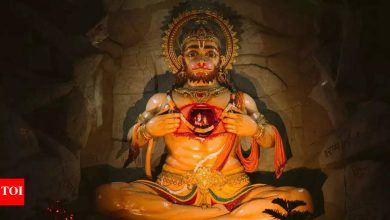Horoscope tomorrow, May 09, 2025: Waiting for the insight of your zodiac sign.

ARIS
AEliminating a rough patch, good health is eventually on the horizon. Some may opt for high-return investment. Commercially, you are performing well and recognized.Expect entertainment during a family meeting. Traveling to a popular place can bring happiness. Be cautious when it comes to real estate cases. Academically, the approach appears promising.
Taurus
Regular exercise will benefit your health a lot. It is intelligent to save money at this point. There may be a salary increase on the card for some. You will take full charge of domestic affairs and handle them efficiently. There is a possibility of a holiday. Despite limited academic time, you will manage to study effectively for an exam. When you join your past again, a pleasant surprise wait.Gemini You can lose inspiration midway through a fitness routine. A pending payment may be delayed. An important assignment can lead to your way to work. Avoid conditions that can disrupt harmony at home. Long -distance travel is likely to be pleasant. Be cautious while discussing property matters.
cancer
Weight watches need to be strict with their diet. It is best to remain in financially savings mode. Commercially, you may need time to bounce back. A major event at home may require your attention. An official journey can turn into a family migration. Avoid closing real estate deals today. Educational performance cannot meet your expectations.Leo An elderly person may need more time to recover. Financial discipline will be important. Commercially, you will find your rhythm again. It can be challenging to persuade a family member to align with your thoughts. There is a possibility of international travel. Some property can take matters more seriously. Today you can ask to fencing with someone you dislike.Virgo Your active lifestyle may require adjustment in your exercise routine. Financially, it is time to transfer to savings mode. Commercially, you will probably follow the prevailing trends. Spending time with younger brothers or children will strengthen the emotional bond. A small journey can refresh your soul. Property related events are on the horizon.
Libra
You may feel pressure to academically excel. Your desire for a lively social engagement is likely to come true. If you want to buy property, consider applying for a home loan. The journey will help you shake the ideas of sadness. The happiness of a family member will uplift your spirits. Expect a stir day to work with you at the center of action. Financially, some ups and downs are expected.Scorpio Positive thinking will be important to overcome emotional climb. Monitor your expenses, although finance will not be a major concern. Stay closely of instructions to complete a task effectively. Expect enthusiasm on the front of the house. A long drive can turn into a delightful adventure. Property related discovery may be necessary.
Correspondence
Recovery can take more time for those who are unhealthy, so patience is necessary. You have to take firm steps to cut expenses. Some may need to be cautious about their professional image. Avoid interfering with others’ affairs to maintain domestic peace. International travel will be pleasant. Buying property can become a serious idea. There is an immediate need for educational or intellectual progress.Capricorn Recovery of health may slow down for some. Consult others before investing in Housing Society. Domestic obligations may cause temporary work disintegration. Now is the time to nurture family bonds. If you are planning a trip abroad, expect a lot of enthusiasm. Property dispute may require legal assistance.
Aquarius
The goal for complete fitness, although your health remains stable. Be prudent with money – you will need to save for the future. Focus if you are following a specific career path. A family gathering or outing will bring great pleasure. Traveling with friends will make for a memorable day. Property related issues can withstand obstacles.
Pisces
Avoid junk food and watch your diet carefully. A risky investment can hesitate you. A new idea cannot give desired results on work. Peace at home will come through your efforts. A smooth journey is likely to be experienced. A real estate deal may take longer than expected. On the academic front, you can feel that you can do better.
Find everything about astrology in the Times of India, including daily horoscope for Aries, Taurus, Gemini, Cancer, Leo, Virgo, Libra, Scorpio, Skito, Sagittarius, Capricorn, Aquarius and Pisces.




